Air — Moon safari. Story behind the album. Track by track guide
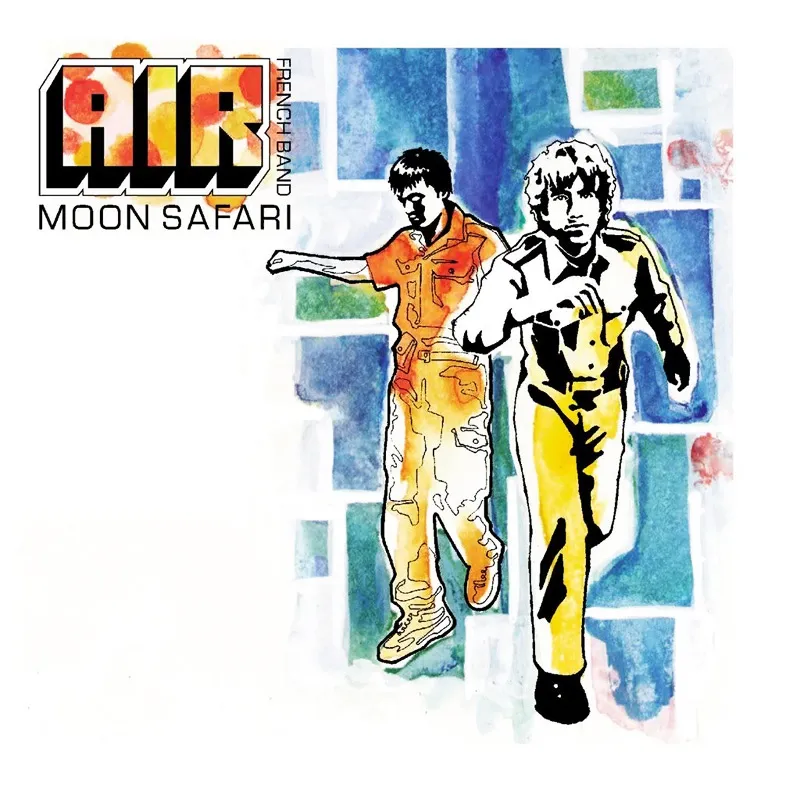
Jean-Benoît Dunckel: Daft Punk were down the street from us in Paris and we could almost hear the music they were making when we opened the window during band sessions. It was the late 1990s, and Paris suddenly had this incredible electronic music scene: all these clubs were opening up. I didn’t get to go to all the parties, though, because I was generally at home with my wife taking care of Solal, our baby. We were poor. It was the tail end of Britpop, and people were wanting something else. We came along with this alien, psychedelic, loungecore music you’d listen to on a Sunday morning after you’d been out clubbing the night before. And one month after Moon Safari came out, we were huge.
Nic Godin: Playing guitars loud through amps is great fun when you’re 15 and full of hormones, but French people are better at being chefs or fashion designers. Rock music is not really in our culture. But electronic music is different. When we discovered it, suddenly we had an outlet.
L’Femme D‘Argent
Nic: It’s one big orgasmic movement—a very long exploration, but still going straight to an orgasm, and then to absolute peace.
JB: It’s to introduce people to the world of Air and our sound. To French chords, the chords of everyday life, not of pop music. Seven minutes to condition the people. Then they’re ready to accept the record.
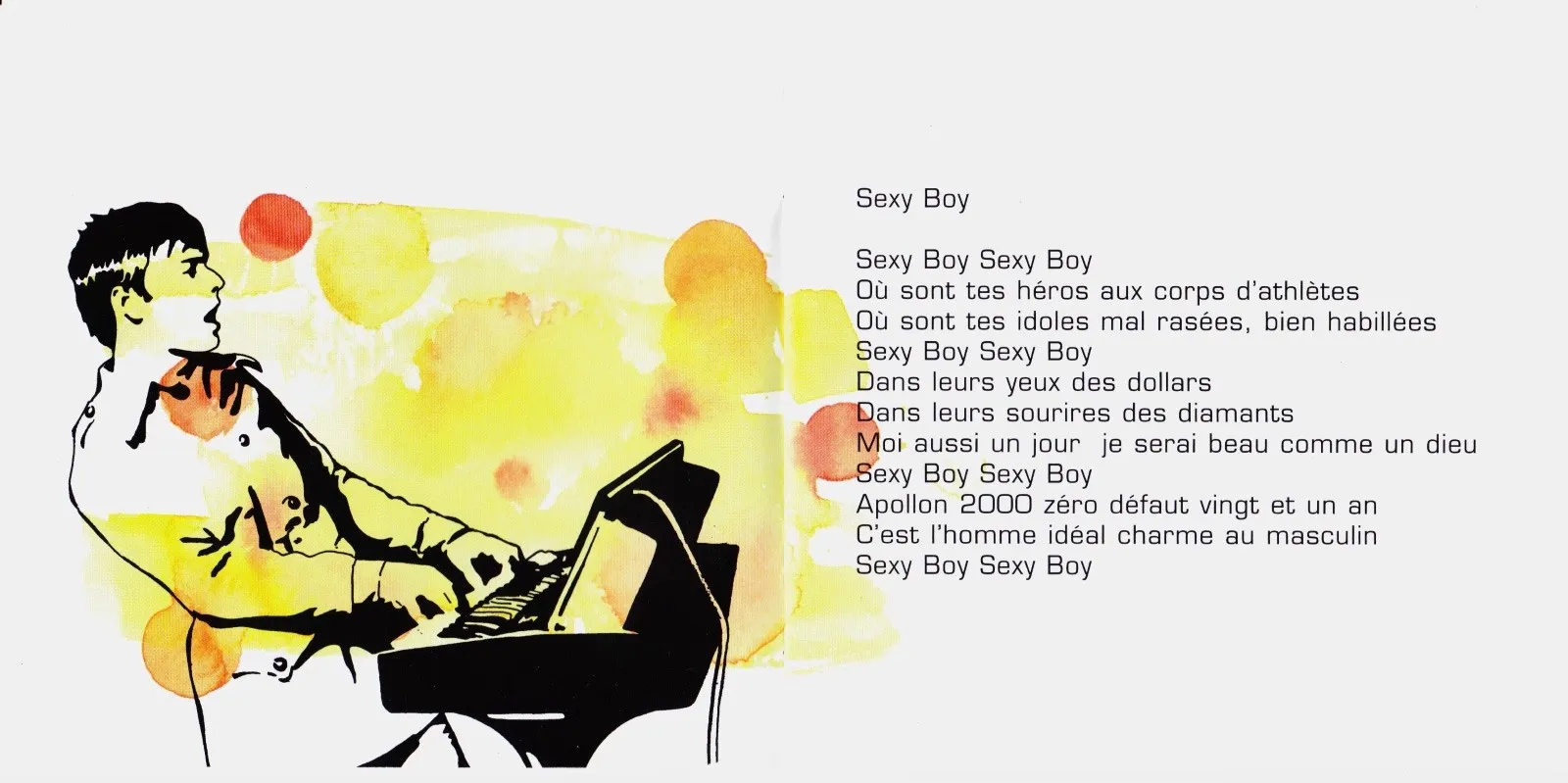
Sexy boy
Nic: It was a joke at the beginning. We were afraid the record company wouldn’t like it. But it’s important to have humour in a record. Sexy boy is hip and if you’re hip you see your life through the way others see you. And so you’re happy.
Someone lent me a 1960s Höfner bass, the model Paul McCartney played in the Beatles. Because I was a guitarist, I put it through my guitar amp, which gave this amazing sound: very cool and dry. One day I played a riff to JB and he said sexy boy out of the blue—and that was how we got the song. If we’d sung sexy girl, it would have been a disaster. Sexy Boy felt different. The song was about who we wanted to be; we weren’t handsome when we were younger; our friends always had more success with girls.
Ever since I was a child, I’d dreamed of making a classic album—and I actually did. The night we did Sexy Boy, I knew my life would change.
All I need
Beth: I went to Paris in the early ’90’s to be an au pair. At that point I had graduated university with a degree in theatre and was planning to act in Anglophone theatre ensembles. Within a few months of arriving, I became friends with a big group of young internationals, mostly photographers and architects. The group kept growing and growing and we partied all the time. A few of them had guitars and we would jam at parties, on the Seine, and anyone who wanted to could sing along.
One night a couple friends and I were singing from a Chris Isaak songbook and they said “Wow, you sing really well”. From then on, every time we went to a party, they’d ask me to sing and through these parties I started to meet music producers who invited me to sing on their projects. The next year at my birthday party, a friend named Marc Collin saw the guitar in my flat and said, “Do you write? Play me something!” I showed him a song called Miner’s Son and he suggested we record it at his studio. This became my first EP (also called Miner’s Son) and he signed it with Rough Trade/Paris. We started working with another producer named Étienne Wersinger who lived nearby in Montmartre. One day there was a guy sitting on the couch and Etienne introduced us. His name was Nicolas Godin.
Nicolas said “Etienne showed me your project—I really like it”. I asked him if he was in music and he told me that he and his partner
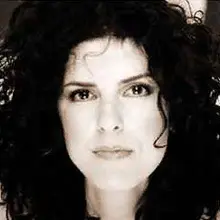 Beth Hirsh
Beth Hirsh
The underlying content of their music was eclectic and they liked working with real instruments. From what I listened to, it was afterwards that the more electronic elements were brought in. They gave me an early version of the music (based on track Les Professionnels from their first EP) but even in that raw state I could tell the song had something special. I immediately found a melody and shortly after wrote the lyrics for it. We were actually going to call it I’ve been wondering. There’s a high part in the chorus where I’d sing that, but in French, the r’s are hard to pronounce so they decided to change the section and the chorus became a vocal wave instead. The record company
It was
Nic: Beth made us sound like
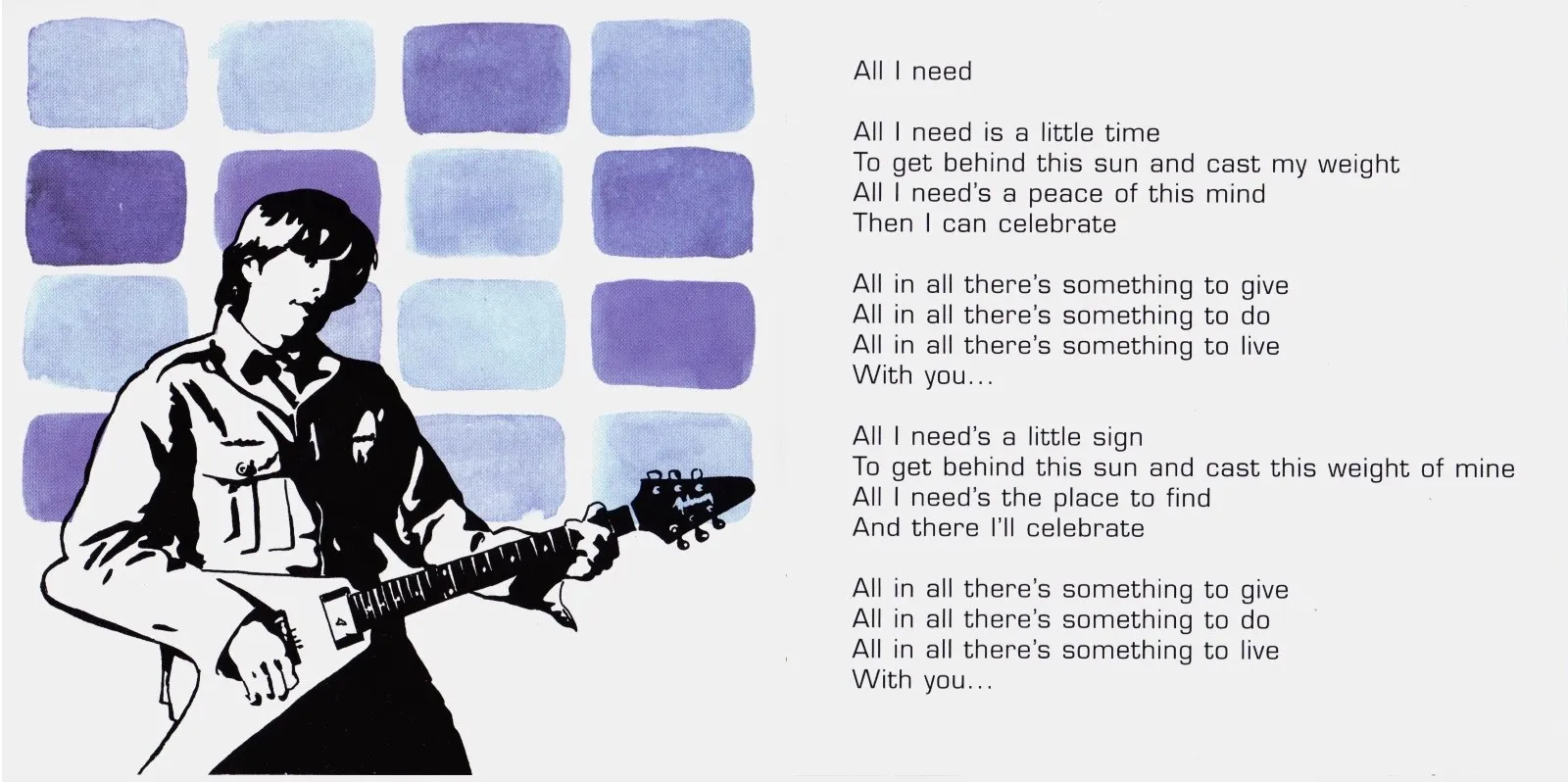
Kelly watch the stars
JB: Unlike American or British bands, we weren’t always thinking
Nic: It’s a silly song. But you need silly songs to make good records. It’s about Jacqueline Smith, Kelly from Charlie’s Angels. Me and JB are really in love with her. It was our first sexual shock when we were kids. I remember talking about who we thought was the most beautiful woman in the world. For me, it was Kelly, so we wrote Kelly watch the stars about her.
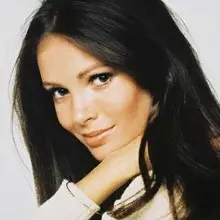 Jaclyn SmithDream of astronaut
Jaclyn SmithDream of astronaut
Talisman
Nic: After we did Sexy boy, Kelly watch the stars and Remember we said “Wow, we’he done too many pop songs.” So we sat down and wrote Talisman in four hours.
The big thing is that we do music and we don’t do only songs. That’s the main difference with any other band. When an idea arrives it can become a song or I can play an (instrumental) piece. We don’t know, and we don’t necessarily try to make a chorus. We have big freedom in the form, so that’s why we are much more entranced by soundtracks or classical music than any other band, because when we suddenly have inspiration, we don’t try to make the song—if it comes to be a song then it’s cool and we like that because we like songs, but if it becomes something else (that’s okay too). I look at other bands when some guy finds a idea on a keyboard or guitar he tries to make a song out of it. They don’t think, they don’t look at what they have.
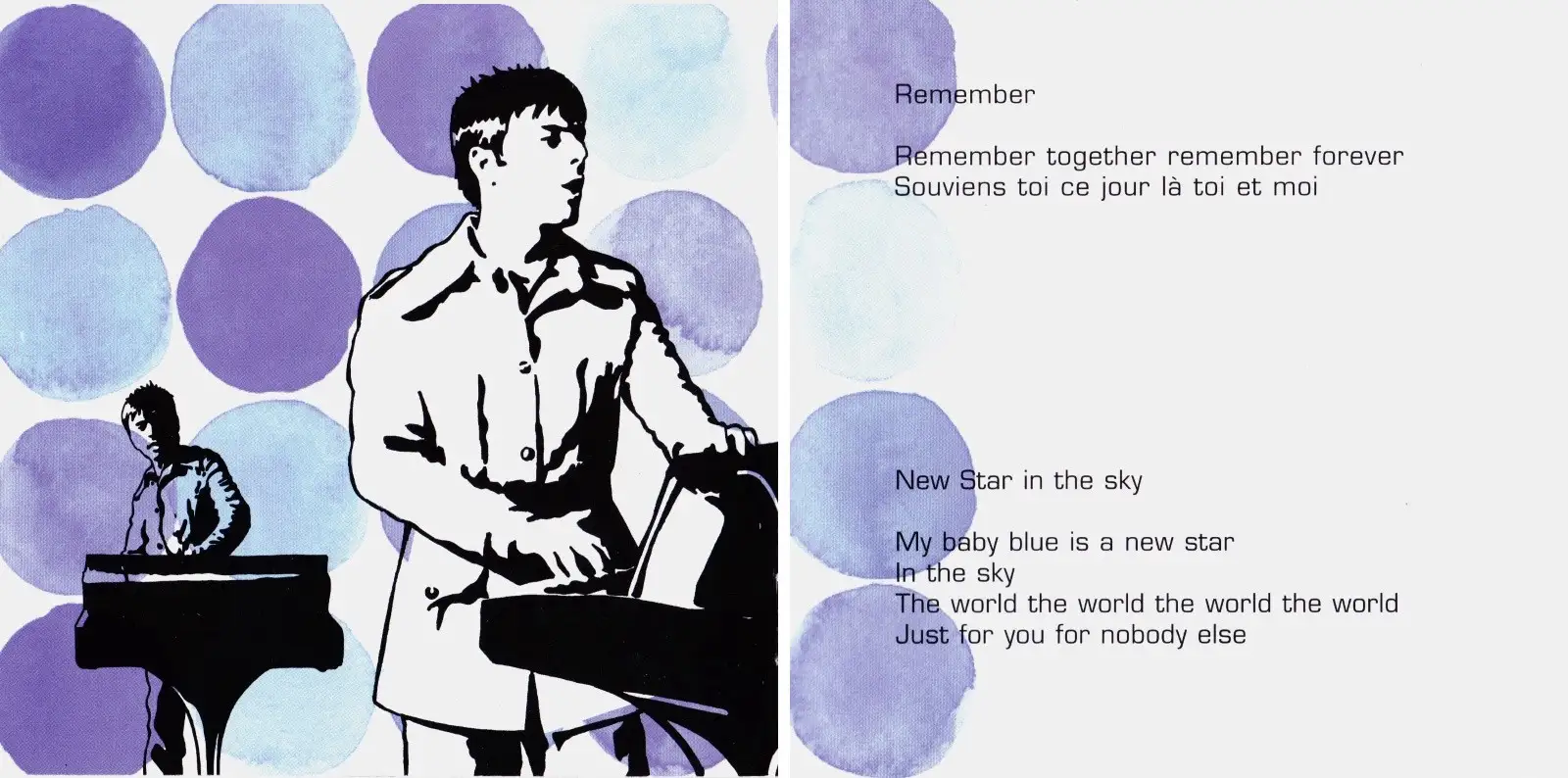
Remember
Nic: We were supposed to compose a song with
You make it easy
Beth: The label encouraged us to work together more, so the guys showed me that piece of music and in a similar way to All I need I found the melody and lyrics quite quickly and the rest of the production flowed after that. The inspiration for You make it easy came from a little summer romance I had at the time. It was a nice time and a good story. Since it was happening to me, it was easy to write and it all came together in a seamless way.
The making of Moon Safari was very slow. The guys knew that they had to make the record their way. I remember them saying there was a lot of pressure on them to get it done as quickly as possible, but they resisted and did it on their terms. The way I was used to working was much faster and I was highly impressed by their focus and level of detail. Also their understanding of song structure. They really know how to build very solid music.
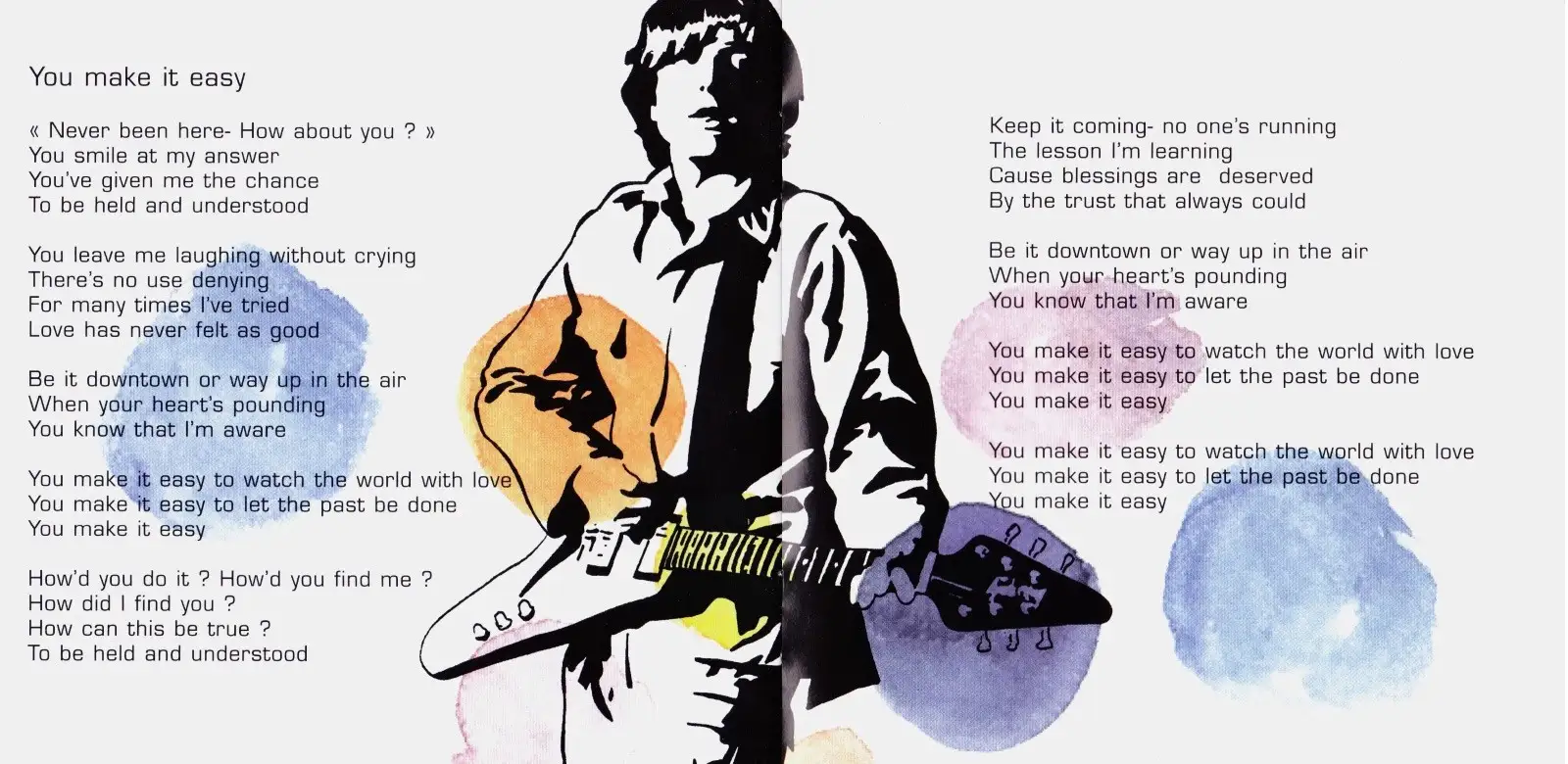
Ce Matin La
Nic: It was a tribute to soundtracks we like. It is very traditional. It’s a lot of people’s favourite track. Even the band. When we told them we weren’t doint it live they wanted to quit!
JB: We recorded the strings at Abbey Road with David Whitaker, an English arranger who’d worked with everybody. We were in this legendary studio where the Beatles had recorded, too shy to even speak to the orchestra. So David took us off to his home in the countryside and we ended up discussing Rachmaninoff. He helped us to overcome our shyness and make something massive and expressive.
Ce matin la—or This morning—you can hear in Virgin Suicides movie.
24-year Sofia Coppola, director, was listening to Moon safari while working on the film’s scenario. And after that she invited Air to compose a score. Here is little story about it.
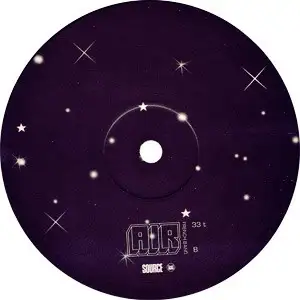
New star in the sky
Nic: It was supposed to be the disco song on the album, but then it... Changed. We believe that when a child is born, a new star appears in the sky. There are enough stars in the sky to have one for every human being.
JB: The track New star in the sky (Chanson pour Solal) came about because I’d studied astrophysics and was into stars, planets and Einstein’s theory of relativity. I was singing about space all the time and reading Ray Bradbury’s A Sound of Thunder. The characters in the book go on a safari into the past to see dinosaurs. I just loved the word safari.
Le Voyage de Penelope
Nic: It was supposed to be


